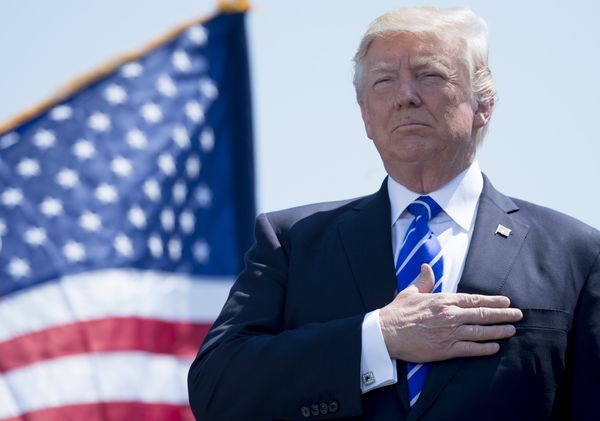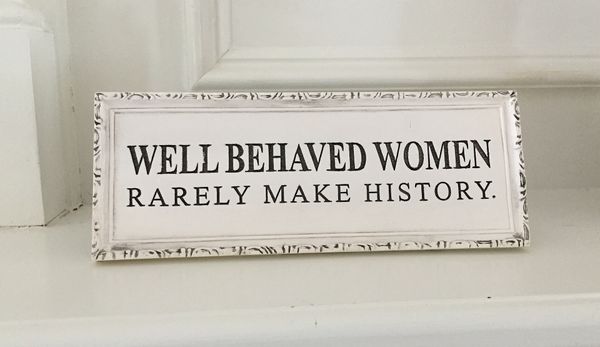On Sunday, President-Elect Donald Trump unleashed a series of threats, (via his favorite means of communication of course, Twitter) directed at American companies who dare to operate their business within their own best interests and engage in the free market. From Trump’s Twitter feed:
“The U.S. is going to substantialy reduce taxes and regulations on businesses, but any business that leaves our country for another country, fires its employees, builds a new factory or plant in the other country, and then thinks it will sell its product back into the U.S. …… without retribution or consequence, is WRONG! There will be a tax on our soon to be strong border of 35% for these companies …… wanting to sell their product, cars, A.C. units etc., back across the border. This tax will make leaving financially difficult, but….. these companies are able to move between all 50 states, with no tax or tariff being charged. Please be forewarned prior to making a very … expensive mistake! THE UNITED STATES IS OPEN FOR BUSINESS.”
This all comes after last Tuesday's announcement from Trump that he had “negotiated” a deal to keep 1,000 Carrier jobs in Indiana that were reportedly ready to be shipped to Mexico.
If things only appeared in real life as they did on Trump’s Twitter feed.
Here’s what really happened, from Dailywire.com’s Ben Shapiro:
“Vice President-elect and Indiana Governor Mike Pence offered a raft of incentives (read: bribes) to keep the Carrier jobs in state. Those included tax incentives that Carrier had previously rejected as insufficient. Why? Because Trump apparently threatened Carrier’s parent company with rejection of some $6.7 billion in federal defense contracts. Here’s Politico reporting:
John Mutz, a former Indiana lieutenant governor who sits on the agency’s 12-member board, told POLITICO that Carrier turned down a previous offer from IEDC before the election. He said he thinks the choice is driven by concerns from Carrier’s parent company, United Technologies, that it could lose a portion of its roughly $6.7 billion in federal contracts.
In other words, Trump threatened a domestic company with taxpayer dollars – we’d presumably have to pay more not to use Carrier’s parent company with regard to defense – so that he could get a headline.”
This is more like it - and also to be expected from Trump.
This is exactly what Trump campaigned on. And while Trump has never even claimed to have been a free-trade person, instead choosing to call his position “fair-trade”, you would think Vice President-Elect Mike Pence, the man Republicans and conservatives entrusted to be the conservative whisper in Trump’s ear, would defend conservative economic principles, right?
Wrong.
Instead, Pence doubled down on the Bernie Sanders-like position, claiming “The free market has been sorting it out and America’s been losing”.
This is all LOL material.
Part of the problem is Trumpism. Trump and Pence are seemingly abandoning certain core conservative economic principles, and despite Obama pulling a similar move in 2009 by singling out Caterpillar, and with rightful blowback from Republicans, nobody seems to be bothered by it with the shoe being on the other foot.
An unlikely source of wisdom, Former Alaska Gov Sarah Palin, chimed in in an op-ed for Young Conservatives:
“When government steps in arbitrarily with individual subsidies, favoring one business over others, it sets inconsistent, unfair, illogical precedent. Meanwhile, the invisible hand that best orchestrates a free people’s free enterprise system gets amputated. Then, special interests creep in and manipulate markets. Republicans oppose this, remember? Instead, we support competition on a level playing field, remember? Because we know special interest crony capitalism is one big fail. Politicians picking and choosing recipients of corporate welfare is railed against by fiscal conservatives, for it’s a hallmark of corruption. And socialism.”
And she's absolutely correct. Good, sound economic principles don't differ depending on which side ‘won’. If it wasn't acceptable for Obama to choose winners and losers in America’s private sector, its not acceptable for Trump. Republicans knew that Trump wasn't a conservative, and while he's often called a ‘populist’, it’s hard to imagine free-trade and conservative principles becoming popular anytime soon. While we can expect the threats to continue, we should brace for all potential fallout from these decisions.





















